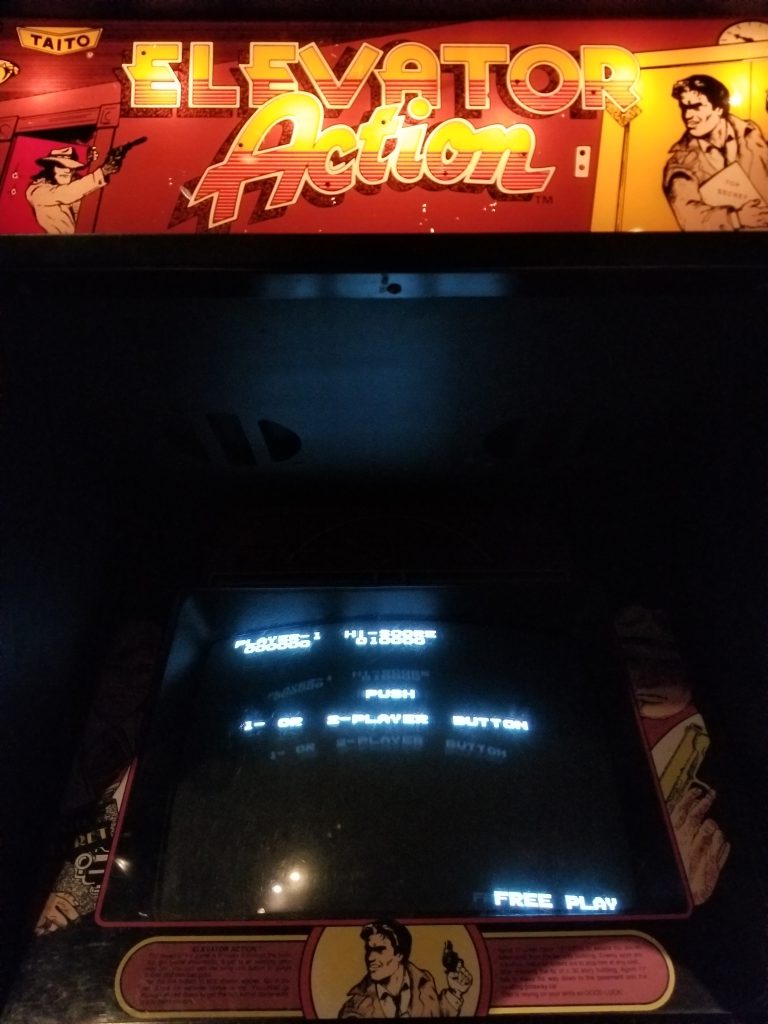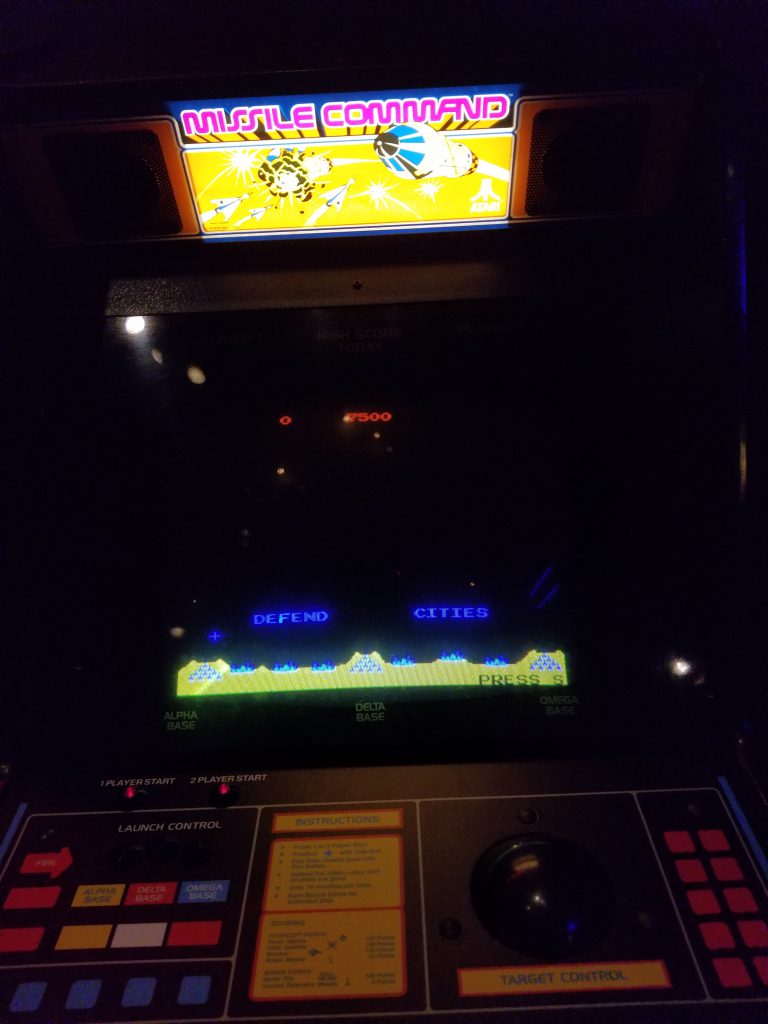written by David Steffen

Elevator Action is a 1983 spy action game by Taito published in arcade format. As each level begins the player character grapples to the top of a 30-story building and must make their way down to the ground floor through the building filled with gun-toting guards while collecting secret documents along the way.
The most novel part of the game, as the name suggests, is the elevators used to move from floor to floor which you and the guards can use to shift up or down floors. You do have an advantage over an individual guard: you also have a gun, and both you and the guards will die from a single bullet, and the guards don’t seem inclined to dodge by jumping and ducking as you can, and you can also kill the guards by jump-kicking.
As far as arcade games of the era go, this one is much easier to get pretty good at than most, so was probably an easy “gateway game” for arcade players. despite the relatively simple controls, you have quite a few options between shooting and dodging and jump-kicking and riding elevators to evade or attack the guards.
I played this for the first time at the Game Changers exhibit at the Science Museum of Minnesota.
Visuals
Typical for the era.
Audio
Typical for the era.
Challenge
Lower than most arcade games, much easier entry point.
Story
Not much story (typical of the era and format).
Session Time
Depends how good you are!
Playability
Simple, apart from it not being immediately obvious that you have to collect documents behind the red doors, and if you don’t open those doors reaching the ground floor just sends you back up.
Replayability
Not in the usual way I mean, but if you like this kind of game there’s certainly plenty of fun to be had.
Originality
It was a new twist at the time.
Playtime
I don’t know how long it would take to play all the way through.
Overall
This is a fun game and less frustrating than other games of its time. And there have been various recent-ish ports that you might be able to find.

